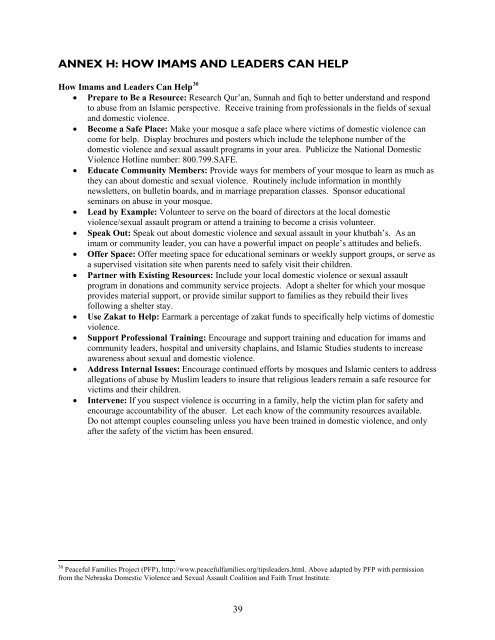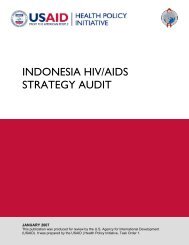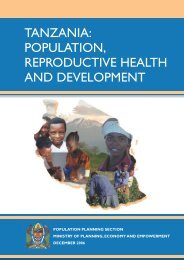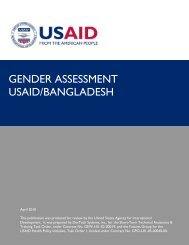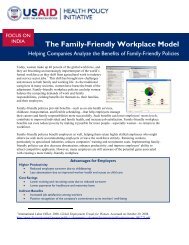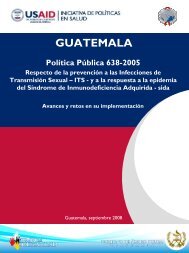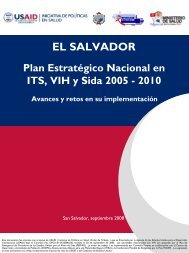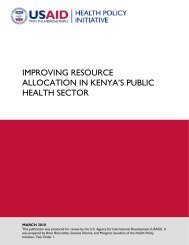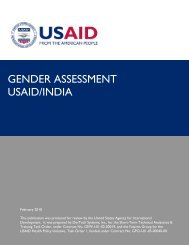A Call to Act - Health Policy Initiative
A Call to Act - Health Policy Initiative
A Call to Act - Health Policy Initiative
Create successful ePaper yourself
Turn your PDF publications into a flip-book with our unique Google optimized e-Paper software.
ANNEX H: HOW IMAMS AND LEADERS CAN HELP<br />
How Imams and Leaders Can Help 30<br />
• Prepare <strong>to</strong> Be a Resource: Research Qur’an, Sunnah and fiqh <strong>to</strong> better understand and respond<br />
<strong>to</strong> abuse from an Islamic perspective. Receive training from professionals in the fields of sexual<br />
and domestic violence.<br />
• Become a Safe Place: Make your mosque a safe place where victims of domestic violence can<br />
come for help. Display brochures and posters which include the telephone number of the<br />
domestic violence and sexual assault programs in your area. Publicize the National Domestic<br />
Violence Hotline number: 800.799.SAFE.<br />
• Educate Community Members: Provide ways for members of your mosque <strong>to</strong> learn as much as<br />
they can about domestic and sexual violence. Routinely include information in monthly<br />
newsletters, on bulletin boards, and in marriage preparation classes. Sponsor educational<br />
seminars on abuse in your mosque.<br />
• Lead by Example: Volunteer <strong>to</strong> serve on the board of direc<strong>to</strong>rs at the local domestic<br />
violence/sexual assault program or attend a training <strong>to</strong> become a crisis volunteer.<br />
• Speak Out: Speak out about domestic violence and sexual assault in your khutbah’s. As an<br />
imam or community leader, you can have a powerful impact on people’s attitudes and beliefs.<br />
• Offer Space: Offer meeting space for educational seminars or weekly support groups, or serve as<br />
a supervised visitation site when parents need <strong>to</strong> safely visit their children.<br />
• Partner with Existing Resources: Include your local domestic violence or sexual assault<br />
program in donations and community service projects. Adopt a shelter for which your mosque<br />
provides material support, or provide similar support <strong>to</strong> families as they rebuild their lives<br />
following a shelter stay.<br />
• Use Zakat <strong>to</strong> Help: Earmark a percentage of zakat funds <strong>to</strong> specifically help victims of domestic<br />
violence.<br />
• Support Professional Training: Encourage and support training and education for imams and<br />
community leaders, hospital and university chaplains, and Islamic Studies students <strong>to</strong> increase<br />
awareness about sexual and domestic violence.<br />
• Address Internal Issues: Encourage continued efforts by mosques and Islamic centers <strong>to</strong> address<br />
allegations of abuse by Muslim leaders <strong>to</strong> insure that religious leaders remain a safe resource for<br />
victims and their children.<br />
• Intervene: If you suspect violence is occurring in a family, help the victim plan for safety and<br />
encourage accountability of the abuser. Let each know of the community resources available.<br />
Do not attempt couples counseling unless you have been trained in domestic violence, and only<br />
after the safety of the victim has been ensured.<br />
30 Peaceful Families Project (PFP), http://www.peacefulfamilies.org/tipsleaders.html. Above adapted by PFP with permission<br />
from the Nebraska Domestic Violence and Sexual Assault Coalition and Faith Trust Institute.<br />
39


